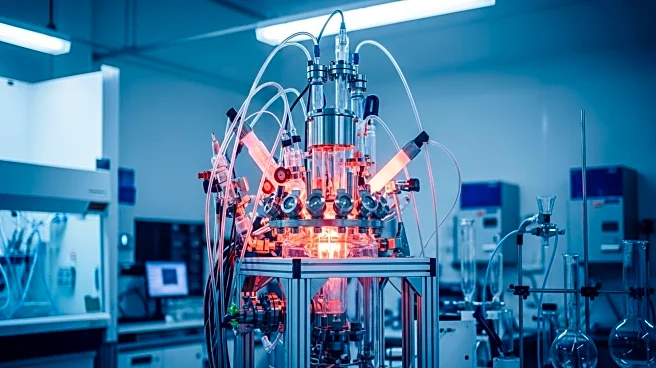What's Happening?
Northwestern University chemists have introduced a new catalyst that could revolutionize plastic recycling by simplifying the process of breaking down polyolefin plastics, which are commonly used in single-use products. This nickel-based catalyst can selectively break down these plastics into valuable products like oils and waxes, bypassing the need for meticulous sorting. The catalyst is also effective in the presence of polyvinyl chloride (PVC), a contaminant that typically renders plastics unrecyclable. This development could significantly enhance the efficiency and economic viability of recycling processes.
Why It's Important?
The introduction of this catalyst addresses a major challenge in plastic recycling: the need for extensive sorting of different plastic types. By enabling the recycling of mixed plastic waste, this technology could reduce the volume of plastics ending up in landfills and the environment, where they contribute to pollution and the formation of microplastics. The ability to recycle plastics contaminated with PVC could further increase recycling rates and reduce environmental impact. This advancement holds potential benefits for industries reliant on plastic materials, as it could lower costs and improve sustainability practices.
What's Next?
The next steps involve scaling up the use of this catalyst in industrial settings to test its effectiveness on a larger scale. If successful, this could lead to widespread adoption in the recycling industry, potentially transforming how plastic waste is managed globally. Further research may focus on optimizing the catalyst's performance and exploring its application to other types of plastics.
Beyond the Headlines
This development could have broader implications for environmental policy and corporate sustainability strategies. As recycling becomes more efficient and economically viable, companies may face increased pressure to adopt sustainable practices and reduce their reliance on virgin plastic materials. Additionally, this technology could influence regulatory frameworks around waste management and recycling standards.











